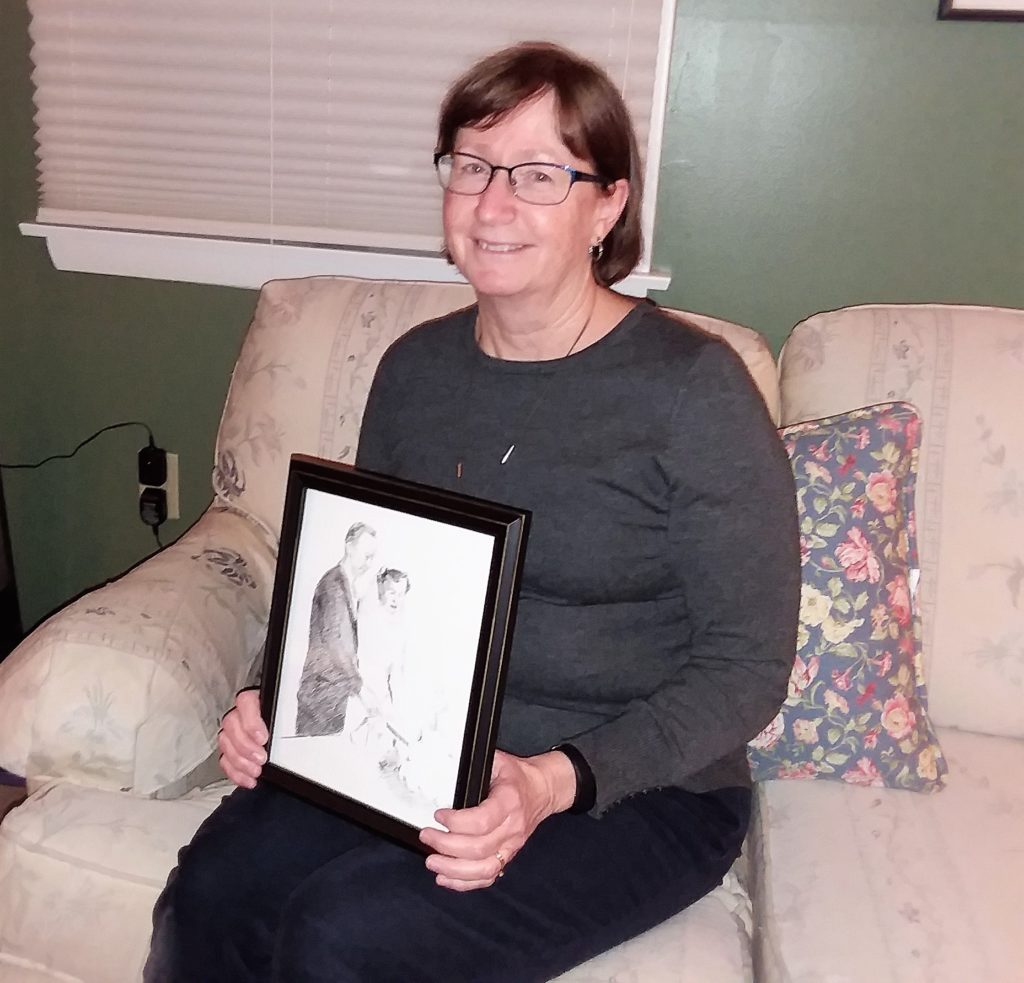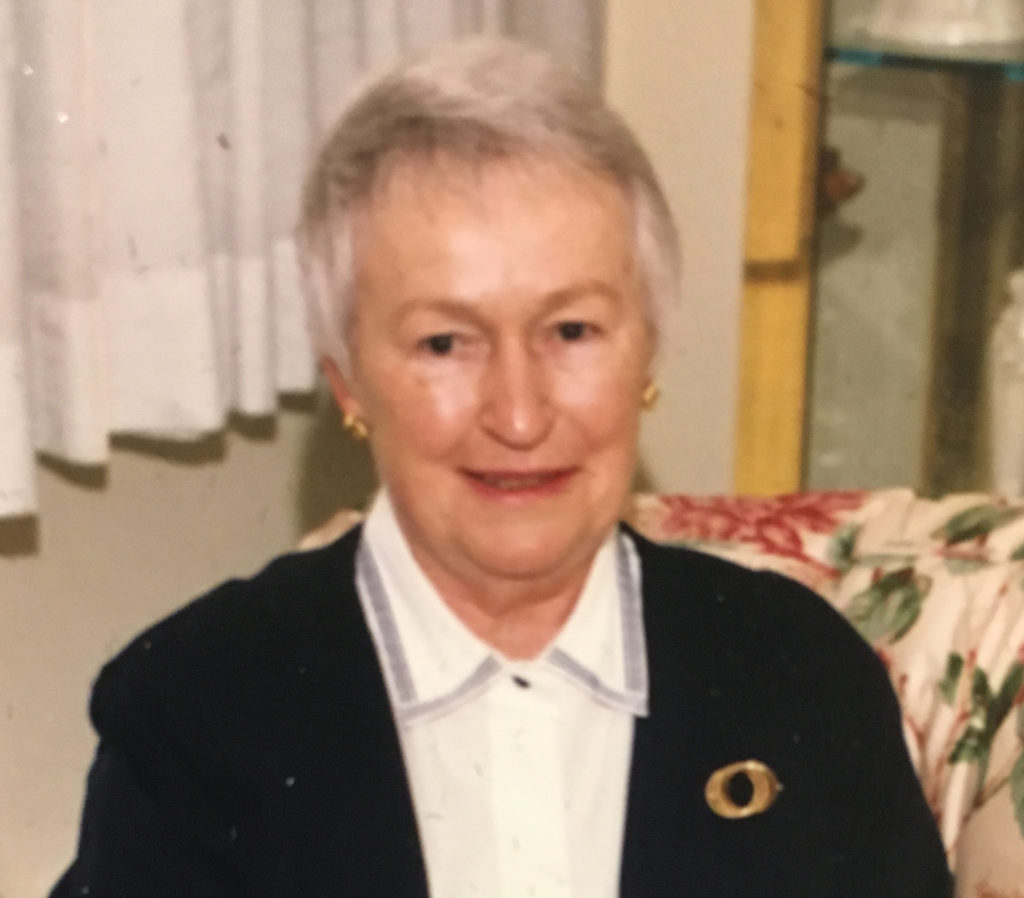Peggy Peeler, of Selinsgrove, hasn’t yet seen “On the Basis of Sex,” the movie about Supreme Court Justice Ruth Bader Ginsburg’s struggles as a woman starting in Harvard Law School in the 1950s. But when Peggy does see it, she’ll be watching not just RBG’s life story but also some strong similarities to her own mother.
Mary Margaret O’Connell Truschel grew up in Jeanette, just southeast of Pittsburgh. In 1953, she graduated from the first Harvard Law School class that allowed women, six years before Ruth Bader Ginsburg, who later transferred to and earned her Juris Doctor degree at Columbia University.
Truschel’s father, John Martin O’Connell, was a lawyer who eventually became the district attorney, judge and mayor of Jeanette. Truschel admired him and decided to become a lawyer too.
“They had learned that Harvard had just opened to women, and her father said that really was the best law school,” said Peggy’s sister, Mary Martha Truschel, who is also an attorney and lives in Pittsburgh.
So off to Harvard Law School their mother went.
Truschel died in 2011, but her daughters proudly shared what they knew of their mother’s Harvard days.

In a scene in the RBG movie, the law school’s dean asks each woman why she is “occupying a place that could’ve gone to a man.” Peggy and Mary said their mother never mentioned situations like that, although she did face challenges.
“Mostly, there were some professors who wouldn’t call on women,” Mary said. “There were some men, mostly other students, who thought the women were taking the place of a man.”
For the most part, though, Truschel felt welcome in Harvard. Her friend and housemate went on to become the Honorable Sondra M. Miller, an appellate court judge in New York who recently returned to private practice.
For Truschel, law school was a time to test her wits and revel in educational challenges.
“She didn’t go to law school with great ambition for a legal career,” Mary said. “She loved law school, that critical thinking that you learned. She was always a reader and a learner.”
That love of learning pushed Truschel to graduate in the top of her class of about 500, 13 of whom were women.
One particular professor encouraged Truschel’s studies. When she graduated, he told her she was one of the best law students he’d had, but even he, apparently, couldn’t envision a woman becoming a lawyer.
“He told her, ‘I want you to accept nothing less than to be the lead secretary for the most prominent lawyer in the biggest firm you can find,’” Mary said. “And he meant it as a kindness.”
Ever the lady, Truschel accepted his words graciously then went on to pass the bar exam and serve a preceptorship, which allowed her to practice law with a Pittsburgh firm called Smith, Best & Horn. She worked about two years before meeting and marrying Jack Truschel. When Mary, the first of their five children, was born, Truschel quit to raise her family.
“I think it was what people did in those times,” Peggy said of her mother’s decision to stay home. Truschel had gotten what she wanted out of Harvard. “She enjoyed what she did, but she especially enjoyed the thinking and the learning that you got from that kind of training. She was a lifelong learner.”
“She felt really good about being a wife and mother,” Mary said.
When their youngest brother left for school, Truschel returned to law for several years. At a gathering of Harvard alumnae where each of the women was asked to talk to incoming coeds, Truschel told them that if the women’s movement meant anything, it should mean each woman has the freedom to choose her life, and Truschel primarily had chosen to be a wife and mother.
“And she loved it,” Mary said. “I can still hear her saying, ‘No education is ever a waste.’”
Truschel’s love of learning extended to her children. Mary is an attorney, Peggy a biologist and professor at Susquehanna University. Their sister Ann runs the insurance agency their father started. Their brother John recently switched from a career in business to being the chief financial officer of Gordon College, and their brother Tom is a manager of a Miami restaurant after having been a professional opera singer.
“She was always really encouraging,” Peggy said of their mother. “She encouraged all five of us to find the things we wanted in life and to do them.”
The focus on Justice Ginsburg’s life has given the Truschel family a renewed interest in their mother’s determination and intelligence … and her unassuming acceptance of her role as a wife and mother.
“We were aware and proud of the fact of our mother’s education when we were growing up, but I think I appreciate it more now,” Peggy said. “Some of that is because of all the things we’ve learned about Ruth Bader Ginsburg, and to think (Mom) did it even before her.”
“Yeah,” Mary agreed. “Mom did not make a big deal about this.”

A mother’s influence
The Truschel children of Pittsburgh grew up with a traditional mother of the 1950s and 60s, but in a special way, Mary Margaret O’Connell Truschel impressed upon her children the importance and love of learning.
One of 13 to graduate in the first Harvard Law School class that admitted women, Truschel went on to practice law for two years before meeting and marrying her husband. When their first child was born a year later, Truschel quit work to stay home, eventually raising five children.
“She did the mom stuff, and Dad was the breadwinner,” said Peggy Peeler, Selinsgrove, the Truschel’s third child. “They had pretty stereotypical roles when we were growing up.”
Truschel died in 2011. Peggy and her older sister, Mary Martha Truschel, a Pittsburgh lawyer, talked about their mother’s influence in their lives.
“For me, I also wanted to be an educated person, and perhaps she helped me see that I was capable of graduate education,” said Peggy, a biologist and professor at Susquehanna University.
Mary recalled her mother’s advice about the barrage of questions judges would ask of lawyers.
“I remember her saying, you wanted to invite those questions,” Mary said. “But you don’t back down. In my mind, I read it as, ‘Be polite, but don’t take any crap.’”
Being raised by a mother who defied society’s expectations of what women could and could not do, the Truschel sisters, when asked, encourage others to find their own happiness.
“I guess I would say, if you’re the only one that wants to do something, it’s OK to do that, even if no one else in your family has done it,” Peggy said. “Figure out what you want to do, and go after it.”
Mary agreed, saying, “Do 53 things until you find the 54th that you love.”
